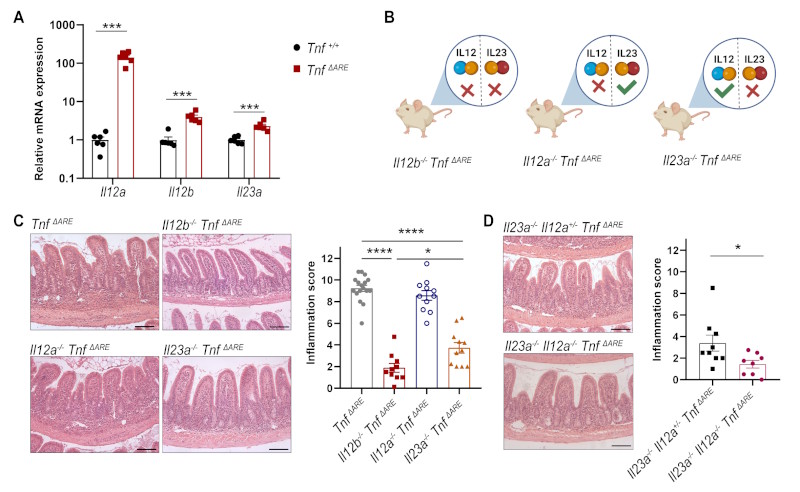Research by Lida Iliopoulou in George Kollias lab delineates IL-12 and IL-23 implications in Crohn’s Disease.
A recent study by Iliopoulou et al, published in Mucosal Immunology, identified interleukin 23 (IL-23) as a dominant cytokine driving the progression of Crohn’s disease (CD), a severe form of inflammatory bowel disease (IBD) affecting the ileum. While Ustekinumab, a widely used monoclonal antibody, targets both interleukin 12 (IL-12) and IL-23, which of the two cytokines is mainly involved in CD progression, remained poorly understood. The research study revealed that IL-23 plays a far more critical role in perpetuating inflammation, with IL-12 only contributing when IL-23 is absent. Using genetic knockout mouse models, the study highlights the key pathogenic function of IL-23 and identifies a novel subset of CD14+ neutrophils as the main producers of IL-23 in the inflamed ileum. Interestingly, IL-23 appears to act independently of IL-17, offering new insights for targeted therapies and future research into IL-23-dependent mechanisms in intestinal inflammation.
Publication: Iliopoulou, L., Lianopoulou, E., Kollias, G., IL-23 Exerts Dominant Pathogenic Functions in Crohn’s Disease-Ileitis, Mucosal Immunology (2024), doi: https://doi.org/10.1016/j.mucimm.2024.05.008
